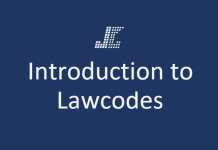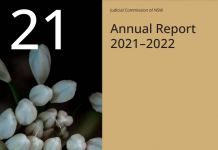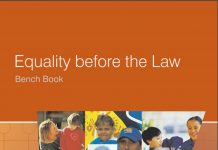Section 1 — Equality before the law
J Elek and A Miller, The evolving science on implicit bias, State Justice Institute and the National Centre for State Courts, Virginia, USA, March 2021 and Equality Australia have been added at 1.6 — Further reading.
Section 2 — Aboriginal people
A new report by V Edwige and P Gray, “Significance of culture to wellbeing, healing and rehabilitation” published in 2021 and commissioned by the Bugmy Bar Book has been added at 2.5 — “Further Reading”.
Section 6 — Children and young people
This chapter has been extensively revised and updated with cases and legislation, new and updated statistics and new sections as follows:
At 6.2.1 Competence to give evidence, the case of Gray v R [2020] NSWCCA 240 has been added in relation to the question of competence and the proper consideration of s 13 of the Evidence Act 1995. At 6.2.2 Criminal responsibility, RP v The Queen (2016) 259 CLR 641 and BC v R [2019] NSWCCA 111 have been added. These cases discuss that the presumption of doli incapax cannot be rebutted merely as an inference from the doing of the acts constituting the offence, although the “circumstances of the offending” may be capable of rebutting the presumption without evidence of the accused’s contemporaneous character or maturity. A discussion of Victim Impact Statements (VIS) has been added to Requirement to obtain the views of children and young people at 6.2.4, including the case of AC v R [2016] NSWCCA 107, where the court was entitled to discount a letter purporting to be a VIS, where the under-age victim’s letter asked for her return to an abusive relationship and sexual offending. This could not sensibly be understood as evidencing either maturity, forgiveness, or a conclusion that the injury, emotional harm, loss or damage caused by the applicant’s offence was not substantial.
A new section on Child care and protection has been added at 6.3. Statistics regarding children in NSW receiving child protection services appear at 6.3.1 and a discussion of Out of home care (OOHC) appears at 6.3.2.
Aboriginal and Torres Strait Islander children are over-represented in OOHC in NSW, with the number of children entering care increasing since 2015-16. At 6.3.3, a discussion of the Aboriginal and Torres Strait Islander Child Placement Principle (ATSICPP) includes the operational framework adopted by the Department of Communities and Justice, the Aboriginal Case Management Policy. This policy is stated to provide a framework for Aboriginal-led and culturally embedded case management practice to safeguard the best interests of Aboriginal children and young people. The purpose of the ATSICPP, enshrined in Ch 2, Pt 2 of the Children and Young Persons (Care and Protection) Act 1998, and s 35 of the Adoption Act 2000, is to ensure Aboriginal and Torres Strait Islander children remain connected to their family, community, culture, and country. The fundamental purpose of the ATSICPP is to enhance and preserve Aboriginal children’s sense of their Aboriginal identity and ensure an Aboriginal child’s right to be raised in their own culture. The ATSICPP also recognises the importance and value of family, extended family, kinship networks, culture and community, in raising Aboriginal children and the role of Aboriginal decision-making. The importance of ensuring that the ATSICPP is adhered to is exemplified in the link between the over-incarceration of Aboriginal people and involvement with the OOHC system, which is discussed at 6.3.3.1 “Cross over kids”. The independent Family is Culture Review Report (2019, chair Professor Megan Davis) ventilated concerns about the late identification of Aboriginal children and the de-identification of children resulting in the ATSICPP not being applied to them. At 6.3.3.2 Issues associated with the identification/de-identification of Aboriginal Children, the cases of Fischer v Thompson (Anonymised) [2019] NSWSC 773 and Hackett (a pseudonym) v Secretary, Department of Communities and Justice [2020] NSWCA 83 are discussed.
At 6.4.8 Sentencing, other decisions and judgment or decision writing, CO v DPP [2020] NSWSC 1123 has been added. In that case, it was held that a failure to obtain a background report in accordance with s 25 Children (Criminal Proceedings) Act 1987 renders the sentence invalid.
A new Appendix B — Interviewing principles to guide communication with vulnerable witnesses, including children and young people, based on the work of Professor Martine Powell, has been added.










